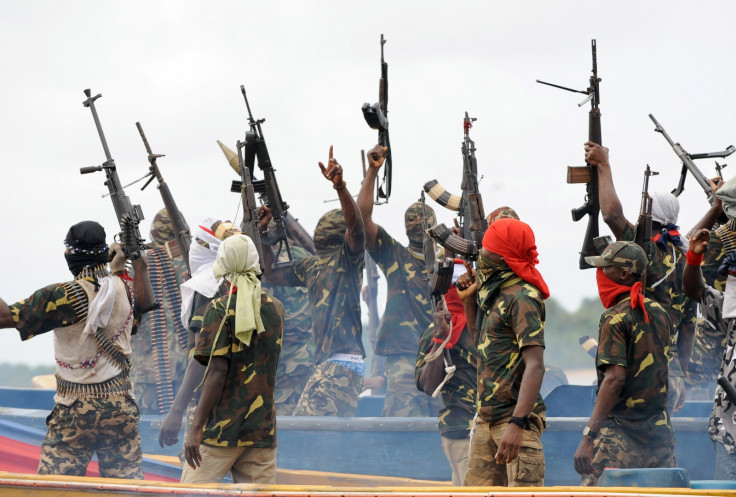Niger Delta Avengers urge Buhari to visit communities in south-east as referendum calls grow
Niger Delta rocked by renewed violence over perceived marginalisation and presence of oil corporations.
The Niger Delta Avengers, a militant group in Nigeria's oil-rich Niger Delta, has urged President Muhammadu Buhari to visit the country's south-east to witness the scale of damage caused by years of oil spills.
The NDA said in a statement that the president should visit areas where facilities owned by foreign oil corporations are located.
"These are just the export terminals, [we are] not talking about the numerous oil and gas flow stations and the oil Wells that criss-cross the length and breadth of the Niger Delta," said the group in a statement. "Mr President, come and see for yourself what the host communities are going through in the hands of Nigeria government and the multinationals."
The group also urged Buhari to call for a referendum on whether Nigerians still want to be part of the country. The NDA suggested that Nigeria followed the example of the UK, which, on 23 June, held a referendum for its citizens on whether they wanted to remain in the EU.
The request for a referendum was also put forward by members of a pro-Biafran movement, who are calling for a vote on a possible breakaway of Biafran territories forcibly annexed to modern-day Nigeria during British colonisation.
Buhari had been scheduled to travel to Ogoniland, in the Niger Delta, to discuss with regional leaders ways to tackle renewed violence in the region and to launch a clean-up operation in areas polluted by years of oil spills. The leader, however, cancelled the visit.
Just before the cancellation, IBTimes UK reported that a man suspected of belonging to the NDA warned the president's life would be in danger if he visited the Niger Delta.
President Buhari Should call for a Referendum. pic.twitter.com/ZteHT4wrVO
— Niger Delta Avengers (@NDAvengers) June 25, 2016
NDA and the birth of militant groups in the Niger Delta
The NDA is the latest militant group to wage war against Nigeria due to perceived marginalisation in the Delta. Attacks blamed on the group, which emerged earlier this year, have forced Chevron and Royal Dutch Shell to close two plants, with the group vowing to bring the country's oil production down "to zero".
The militants last claimed responsibility for an attack on 15 June. Nigeria, Africa's biggest oil producer, has already been negatively affected by renewed violence in the region as oil production dropped to 1.4 million barrels per day, from 2.2m bpd. Buhari accused NDA of vandalism and warned that the Nigerian government would deal with the militants in the same way it is tackling Boko Haram in the country's north-east.

However, earlier in June, Nigeria announced it would scale back its military presence in the Niger Delta in order to foster dialogue with militants.
After initially refusing, the NDA accepted the proposition to start talks. However, the group said the federal government must meet its demands before "genuine" talks could take place.
Earlier this month, reports claimed the federal government had reached a 30-day truce with militants in the Niger Delta, including NDA members. The NDA, however, later denied the claims.
Militant groups in the oil-rich Niger Delta region took hold in the early 2000s following the deterioration of people's living conditions blamed on the increase of oil-related activities by foreign exploration corporations. Tensions flared up in the local communities as some ethnic groups felt they were being exploited and did not benefit from the crude oil on their land.
The repeated oil spills that considerably damaged the environment and affected people's health further deepened the communities' frustrations. After being elected in 2015, Buhari extended a 2009 amnesty granted to 30,000 former militants in the area.
Nigeria up close: Check out our Flipboard magazine
© Copyright IBTimes 2025. All rights reserved.






















